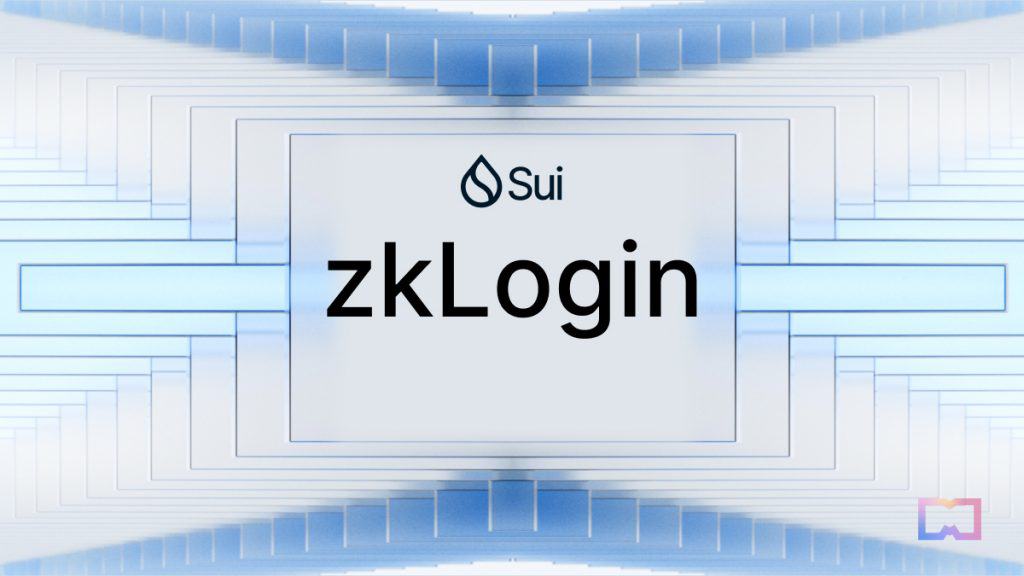Sui Introduces zkLogin for Google and Twitch to Enhance Web3 Engagement
In Brief
Sui's zkLogin is now available, providing a Web3 authentication framework that permits Web3 users to log into dApps using their already established accounts with platforms like Google, Facebook, Twitch, and others.
Looking ahead, Sui intends to incorporate zkLogin with services like Microsoft, Apple, WeChat, and Amazon.

Layer 1 blockchain Sui today announced the launch of zkLogin zkLogin is a Web3 authentication tool that allows users to access decentralized applications (dApps) by using their existing accounts from popular Web2 social platform connections.
According to Sui, zkLogin streamlines the user experience by eliminating the complicated onboarding typically associated with wallet setup, seed phrase handling, and private key management for on-chain dApp transactions. Instead, it enables developers to allow users to authenticate on their favorite dApps using their existing accounts from platforms like Google, Facebook, and Twitch with zkLogin.
In future updates, Sui plans to link zkLogin with Microsoft, WeChat, Apple, and Amazon.
"By giving users the ability to access dApps using the social logins they're already accustomed to, zkLogin breaks down a significant barrier that has kept many mainstream users away from the benefits of blockchain technology,\" said Greg Siourounis, managing director at the Sui Foundation, in an official statement.
Sui’s zkLogin utilizes zk-SNARKs in conjunction with JSON Web Tokens, employing advanced zero-knowledge proof technology. This allows for verification of claims without requiring exposure of the sensitive data underpinning those claims.
This means users can confirm their identity or ownership of a wallet while keeping the specific credentials hidden from view.
The zkLogin Setup Ceremony
To optimize the efficiency of zero-knowledge proof generation, the Sui Foundation is organizing an event to generate a Common Reference String (CRS) that will be available for all applications on the Sui platform.
A Common Reference String (CRS) is a key cryptographic component used in various cryptographic protocols, including zero-knowledge proofs. Its creation relies on a detailed circuit description alongside securely generated random numbers.
The trustworthiness of this procedure is based on two essential principles:
- Guaranteeing the proper execution of the sampling phase.
- Ensuring the secure disposal of confidential random numbers.
Sui emphasizes that it involves multiple entities and follows a distributed protocol to make sure that the final setup meets all required security and privacy standards, even if only a single participant acts honestly according to the protocol.
In the realms of zero-knowledge proofs and related cryptographic methods, a CRS serves as a random and publicly known data string that facilitates protocol security and functionality.
Typically, this string incorporates various random values and parameters originating from a trusted setup process. The CRS acts as a shared foundation or reference point for both the prover and the verifier during cryptographic interactions.
In zero-knowledge proofs, for instance, the CRS ensures that the proof generation is secure while allowing the verifier to trust what the prover claims without disclosing any sensitive information.
The CRS is often formed through a trusted setup ceremony where different parties work collaboratively to create the string, maintaining its randomness and security.
As per Sui, the zkLogin setup ceremony utilizes the Groth16 zkSNARK system, recognized for its compact proof size and quick verifier performance. However, this efficiency comes with an initial trade-off that requires an intensive setup phase.
Sui is inviting a selection of up to 50 experts in blockchain, cryptography, and technology, as well as around 100 validators, to contribute to this crucial setup ceremony.
Additionally, zkLogin is now readily available for integration by all developers associated with Sui, enabling them to provide this feature to their application users.
Disclaimer
In line with the Trust Project guidelines Please be advised that the information on this page is not intended to serve as legal, tax, investment, financial, or any other form of advice. It’s essential to only invest what you can afford to lose and seek independent financial guidance if uncertain. For further insights, we recommend checking the terms and conditions and the help and support sections provided by the issuer or advertiser. MetaversePost is dedicated to delivering precise, unbiased reporting; however, market conditions may change unexpectedly.







